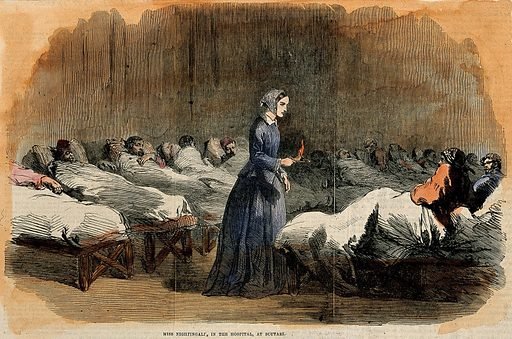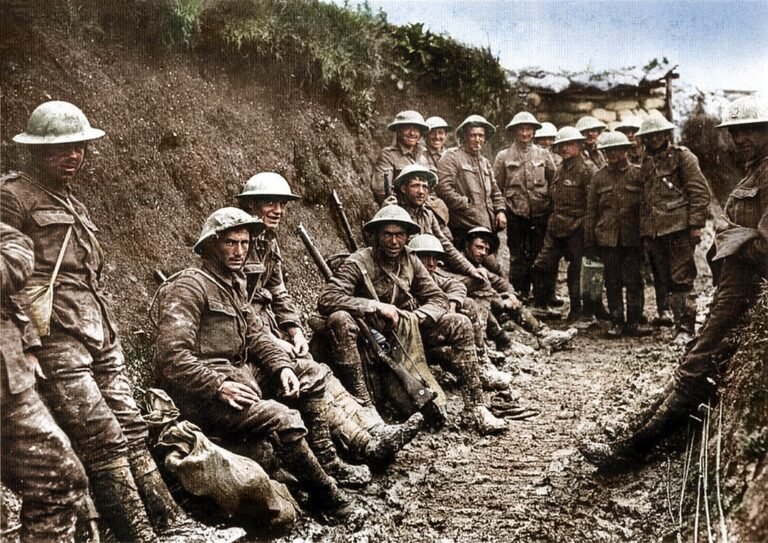Florence Nightingale was a pioneering nurse and social reformer. Her work transformed healthcare and saved countless lives.
Florence Nightingale is often called the “Lady with the Lamp,” a title earned during the Crimean War. She walked the halls of hospitals at night, tending to wounded soldiers. But her impact goes far beyond her bedside manner. She revolutionized nursing practices and laid the foundation for modern medical care.
Born into a wealthy family, Nightingale chose a path of service. She believed in the power of hygiene, fresh air, and proper nutrition. These principles, simple yet profound, changed how hospitals operated. Her legacy lives on in the medical field, inspiring nurses worldwide. Florence Nightingale’s story is one of compassion, determination, and lasting impact.

Credit: www.britannica.com
Early Life And Influences
Florence Nightingale’s early life was shaped by her wealthy family’s values and social expectations. Her curiosity and compassion for the needy sparked a passion for nursing. Influenced by her travels and studies, she challenged societal norms and pursued a groundbreaking path in healthcare.
Florence Nightingale, often remembered as the founder of modern nursing, had a fascinating early life that shaped her path. Her story is one of a curious mind and a compassionate heart, combining to fuel her groundbreaking contributions to healthcare. Understanding her beginnings offers insights into how personal experiences and influences can shape a legacy.
Family Background
Florence was born on May 12, 1820, into a wealthy British family. Her parents, William Edward and Frances Nightingale, were well-connected and valued education. Despite the expectations of society for women of her class, Florence’s parents supported her intellectual pursuits.
The Nightingale family traveled extensively, exposing Florence to different cultures and ideas. This travel instilled in her a broad perspective on life and a desire to make a difference. Can you imagine how such exposure might ignite a young person’s passion to change the world?
Education And Early Interests
Florence’s education was extensive for a woman of her time. Her father took charge of her schooling, teaching her mathematics, philosophy, and languages. His encouragement helped Florence develop a love for learning, which became a cornerstone of her career.
Despite societal norms, Florence was deeply interested in healthcare. She read widely on the subject, yearning to understand how to improve the care of the sick. Her determination was evident early on, as she sought to transcend the traditional roles assigned to women.
Florence’s interests were not just academic; she had a profound desire to help others. She often visited the poor and sick in nearby villages, learning firsthand about the challenges they faced. What early experiences in your life have shaped your passions today?
Florence Nightingale’s early life is a testament to how family support and education can empower individuals to pursue their dreams. Her journey reminds us of the importance of nurturing curiosity and compassion in young minds.
Decision To Pursue Nursing
Florence Nightingale’s decision to become a nurse was bold. During her time, nursing wasn’t a respected profession. Women were expected to marry and manage households. Nightingale chose a different path. She wanted to care for the sick and improve healthcare. Her decision changed the course of her life and history.
Breaking Societal Norms
Florence Nightingale grew up in a wealthy family. Her parents expected her to marry well. They didn’t want her to work. Nursing was seen as lowly work. Nightingale defied these norms. She believed women could do more. Her choice shocked society. But she was determined.
Inspiration And Motivation
Florence was deeply spiritual. She felt called to help others. She believed it was her duty. Her visits to hospitals inspired her. She saw the poor conditions. Patients suffered needlessly. Nightingale wanted to change this. Her passion grew stronger. She knew nursing was her path.
Work During The Crimean War
Florence Nightingale is a legendary figure in nursing history. Her work during the Crimean War changed healthcare forever. Nightingale’s dedication improved conditions for countless soldiers. Her efforts not only saved lives but set new standards. Let’s dive into her journey and her pioneering practices.
Journey To Crimea
In 1854, Nightingale and 38 nurses traveled to Crimea. They responded to the British government’s plea for help. The journey was long and filled with challenges. Upon arrival, they found overcrowded hospitals and unsanitary conditions. Soldiers suffered from lack of basic care and essentials. Nightingale saw the urgent need for change. She and her team got to work immediately.
Revolutionary Nursing Practices
Nightingale introduced new sanitation practices in the hospitals. She ensured clean bedding, fresh air, and proper nutrition. Her team regularly bathed patients and cleaned wards. These changes drastically reduced the death rate. Nightingale also collected data to support her methods. Her use of statistics was innovative at the time. Her practices laid the foundation for modern nursing.

Credit: www.britannica.com
Innovations In Healthcare
Florence Nightingale is known for her groundbreaking work in healthcare. Her innovations transformed nursing and hospital care forever. She focused on improving patient conditions and reducing death rates. This led to significant advancements in medical practices.
Sanitation And Hygiene Improvements
Nightingale understood the importance of cleanliness. She implemented strict hygiene protocols in hospitals. This included regular handwashing and cleaning of surfaces. She also ensured proper ventilation in patient wards. Her focus on sanitation reduced infection rates dramatically. Patients experienced quicker recovery times.
Introduction Of Statistical Methods
Florence Nightingale introduced statistical methods in healthcare. She collected data on patient outcomes and hospital conditions. This data helped identify patterns and areas for improvement. She used diagrams to present her findings clearly. Her work laid the foundation for evidence-based medicine.
Establishment Of Nursing Schools
Florence Nightingale changed nursing forever. Her work laid the foundation for modern nursing education. She believed in formal training for nurses. This led to the establishment of nursing schools. Her vision turned nursing into a respected profession. She worked tirelessly to improve hospital conditions. This effort extended to creating structured education for nurses.
Founding Of St. Thomas’ Hospital School
In 1860, Florence Nightingale founded a nursing school at St. Thomas’ Hospital in London. It was the first secular nursing school in the world. The school focused on teaching nurses practical skills. Students learned about hygiene and patient care. They were trained to be both compassionate and skilled. The curriculum was rigorous. It aimed to produce highly qualified nurses. Graduates were respected and sought after.
Impact On Nursing Education
The St. Thomas’ Hospital School set new standards for nursing education. Its success inspired many other schools worldwide. Nightingale’s methods became the norm in nursing. Her emphasis on hygiene improved patient outcomes. This approach reduced infection rates significantly. Her school taught nurses to use data and observation. These skills became vital in patient care and hospital management.
Nightingale’s influence extended beyond her lifetime. Her teachings shaped nursing into the profession it is today. Her legacy lives on in every nurse trained in her footsteps.
Legacy In Public Health
Florence Nightingale’s impact on public health is profound. Her work laid the foundation for modern healthcare. Nightingale’s innovative approach transformed nursing into a respected profession. Her legacy goes beyond nursing. She championed public health reforms that changed societies worldwide.
Advocacy For Health Reforms
Nightingale understood the importance of sanitation. She advocated for clean hospitals and hygiene practices. Her efforts reduced infection rates significantly. Nightingale’s reports highlighted poor sanitary conditions in hospitals. She pushed for changes in hospital designs to improve patient care.
Her advocacy extended to homes and communities. Nightingale believed clean environments prevent diseases. Her work influenced sanitation laws and health policies globally. Her ideas are still relevant today.
Influence On Global Health Policies
Florence Nightingale’s influence reached far beyond England. Her ideas were adopted by hospitals worldwide. Nightingale’s statistical methods improved healthcare systems globally. She introduced evidence-based practices. This approach helped shape modern medical research.
Nightingale’s work inspired health policy reforms worldwide. Her principles guide public health initiatives today. Her legacy continues to impact global health positively. Florence Nightingale remains a symbol of dedication and progress in healthcare.
Publications And Writings
Florence Nightingale’s writings focused on healthcare reform and nursing practices. Her publications laid the foundation for modern nursing. Known as “The Lady with the Lamp,” she highlighted hygiene and patient care in her influential works.
Florence Nightingale’s writings transformed nursing. Her works provided a blueprint for modern healthcare. Nightingale’s publications focused on sanitation and healthcare reform. She used her experiences to educate and inspire. Her writings remain influential in the nursing profession today.
Notable Works And Books
Nightingale’s most famous book is “Notes on Nursing.” It was published in 1859. This book was a guide for caregivers. It emphasized the importance of hygiene and patient care. Her work “Notes on Hospitals” offered insights into hospital design. It focused on creating healthier environments. These publications set new standards in healthcare.
Influence On Nursing Literature
Nightingale’s writings laid the foundation for nursing education. Her ideas reshaped nursing literature globally. She emphasized evidence-based practices. Nightingale’s focus on statistics revolutionized healthcare reporting. Her works taught nurses to use data for patient care. Her influence persists in modern nursing curriculums.
Recognition And Honors
Florence Nightingale’s impact on nursing is undeniable. Her efforts transformed healthcare and earned her immense recognition. Her dedication to improving hospital conditions and patient care paved the way for modern nursing. Over the years, she received numerous honors and accolades for her contributions.
Awards And Distinctions
Nightingale received many prestigious awards. In 1883, Queen Victoria awarded her the Royal Red Cross. This was a significant honor for her nursing work. In 1907, she became the first woman to receive the Order of Merit. This was a testament to her outstanding contributions to society. Her influence extended beyond the UK, with international recognition of her efforts.
Commemoration In History
Florence Nightingale’s legacy lives on. Many institutions and organizations honor her memory. The Nightingale Pledge, taken by nurses, reflects her principles. International Nurses Day is celebrated on her birthday, May 12th. Statues and monuments worldwide commemorate her life and work. Her legacy continues to inspire future generations of healthcare professionals.
FAQs
What Was Florence Nightingale Best Known For?
Florence Nightingale is best known for founding modern nursing. She improved sanitary conditions in hospitals. Her work during the Crimean War saved many lives. Nightingale’s efforts led to significant healthcare reforms. Her legacy continues to inspire nurses worldwide.
How Long Did Florence Nightingale Sleep For?
Florence Nightingale reportedly slept for four hours a night. She prioritized her work and patients over sleep. Her dedication to nursing and healthcare reform made her an influential figure. Despite limited sleep, her contributions to medicine were significant.
Who Was The First Lady To Become A Nurse?
Florence Nightingale is recognized as the first lady to become a nurse. She founded modern nursing and transformed healthcare practices during the Crimean War. Her dedication and innovations led to significant improvements in patient care and hospital conditions, establishing the foundations for nursing as a respected profession.
What Is Florence Nightingale’s Theory Of Nursing?
Florence Nightingale’s theory of nursing emphasizes the importance of a clean, quiet, and healthy environment to promote patient healing. This theory highlights sanitation, fresh air, and proper nutrition as key factors in patient care.
Conclusion
Florence Nightingale’s legacy continues to inspire and guide healthcare today. Her dedication to nursing transformed patient care. Her work laid the foundation for modern nursing practices. Nightingale’s compassion and commitment set a high standard. She showed the world the power of caring for the sick.
Her contributions extend beyond nursing into hospital sanitation and public health. Nightingale’s story teaches resilience and the importance of empathy. Her life is a reminder of the impact one person can make. Her influence remains strong, shaping healthcare worldwide. Florence Nightingale, a true pioneer in her field.








